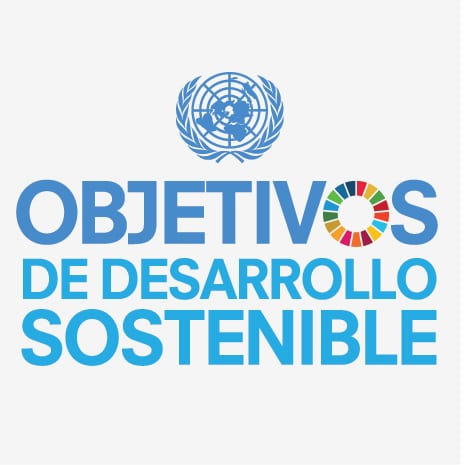 Vigilancia Tecnológica
Vigilancia Tecnológica
Trex adding capacity a month ahead of schedule
Extra capacity is coming online faster than initially projected for Trex Co. Inc.'s new manufacturing facility at its headquarters site in Winchester, Va.
"We now expect all lines in our new plant to be fully operational by the end of May -- 30 days ahead of schedule," President and CEO Bryan Fairbanks said during a May 10 first quarter conference call with investment bankers.
The expansion will provide about 70 percent more capacity compared to 2019 volume levels and give Trex an important competitive advantage in the dynamic composite decking marketplace, Fairbanks added.
Currently, the utilization rate is 100 percent.
"We are running all of the assets we have and getting every single linear foot of decking and railing out to the marketplace," Fairbanks said.
Sales of Trex decking, which is made from recycled polyethylene and wood fiber, are up 23 percent to $246 million for the 2021 first quarter compared to the prior year. Decking products brought in $233 million while railing products added $13 million. Profit for the first quarter was $49 million.
The first-quarter growth was driven by demand for residential products and accelerated market share gains vs. wood, according to Trex officials. They said the company benefitted from continued, strong trends for outdoor living spaces and increasing consumer preference for environmentally sustainable products with proven high performance, aesthetics and quality.
"This strong performance underscores the accelerated pace at which we are taking share from the traditional wood market, particularly as wood prices increase. Our analysis indicates that a 1 percentage point market share gain from would translate to over $15 million of annual sales," Fairbanks said.
The earnings growth was hampered, he added, by startup costs from the capacity expansion program, higher raw material inflation and transportation costs, and the impact from a March fire in one of its buildings at the Virginia manufacturing campus.
The estimated sales loss from the fire was $12 million to $13 million, Chief Financial Officer Dennis Schemm said.
Because of inflationary pressures, Trex announced a mid-single digit price increase on most products will take effect on Aug. 1.
On the production side, Fairbanks said the installed extrusion lines are performing well and the additional capacity should give Trex a competitive edge in the composite decking marketplace, which continues to gain momentum, in part because it needs little maintenance.
To meet its own needs for material, Trex introduced the NexTrex Packaging Label initiative, which allows packaging to be branded with an official certification that it has been tested, verified, and certified as acceptable for recycling into high-performance decking.
As part of this initiative, Trex also will work with brand owners and companies to encourage participation at the retail level by positioning NexTrex bins and signs in stores to drive awareness and engagement in the plastic drop-off program.
"The biggest move that we're seeing with recycled inputs right now is the higher volume that we're purchasing. So we're having to go further and of course, transportation we're seeing significant increases in, that's the biggest driver of the increased cost in polyethylene right now," Schemm said.
For the second quarter, Trex officials expect consolidated sales to range from $295 million to $305 million, which would represent 36 percent year-over-year growth at the midpoint of the range.
"We now expect all lines in our new plant to be fully operational by the end of May -- 30 days ahead of schedule," President and CEO Bryan Fairbanks said during a May 10 first quarter conference call with investment bankers.
The expansion will provide about 70 percent more capacity compared to 2019 volume levels and give Trex an important competitive advantage in the dynamic composite decking marketplace, Fairbanks added.
Currently, the utilization rate is 100 percent.
"We are running all of the assets we have and getting every single linear foot of decking and railing out to the marketplace," Fairbanks said.
Sales of Trex decking, which is made from recycled polyethylene and wood fiber, are up 23 percent to $246 million for the 2021 first quarter compared to the prior year. Decking products brought in $233 million while railing products added $13 million. Profit for the first quarter was $49 million.
The first-quarter growth was driven by demand for residential products and accelerated market share gains vs. wood, according to Trex officials. They said the company benefitted from continued, strong trends for outdoor living spaces and increasing consumer preference for environmentally sustainable products with proven high performance, aesthetics and quality.
"This strong performance underscores the accelerated pace at which we are taking share from the traditional wood market, particularly as wood prices increase. Our analysis indicates that a 1 percentage point market share gain from would translate to over $15 million of annual sales," Fairbanks said.
The earnings growth was hampered, he added, by startup costs from the capacity expansion program, higher raw material inflation and transportation costs, and the impact from a March fire in one of its buildings at the Virginia manufacturing campus.
The estimated sales loss from the fire was $12 million to $13 million, Chief Financial Officer Dennis Schemm said.
Because of inflationary pressures, Trex announced a mid-single digit price increase on most products will take effect on Aug. 1.
On the production side, Fairbanks said the installed extrusion lines are performing well and the additional capacity should give Trex a competitive edge in the composite decking marketplace, which continues to gain momentum, in part because it needs little maintenance.
To meet its own needs for material, Trex introduced the NexTrex Packaging Label initiative, which allows packaging to be branded with an official certification that it has been tested, verified, and certified as acceptable for recycling into high-performance decking.
As part of this initiative, Trex also will work with brand owners and companies to encourage participation at the retail level by positioning NexTrex bins and signs in stores to drive awareness and engagement in the plastic drop-off program.
"The biggest move that we're seeing with recycled inputs right now is the higher volume that we're purchasing. So we're having to go further and of course, transportation we're seeing significant increases in, that's the biggest driver of the increased cost in polyethylene right now," Schemm said.
For the second quarter, Trex officials expect consolidated sales to range from $295 million to $305 million, which would represent 36 percent year-over-year growth at the midpoint of the range.






